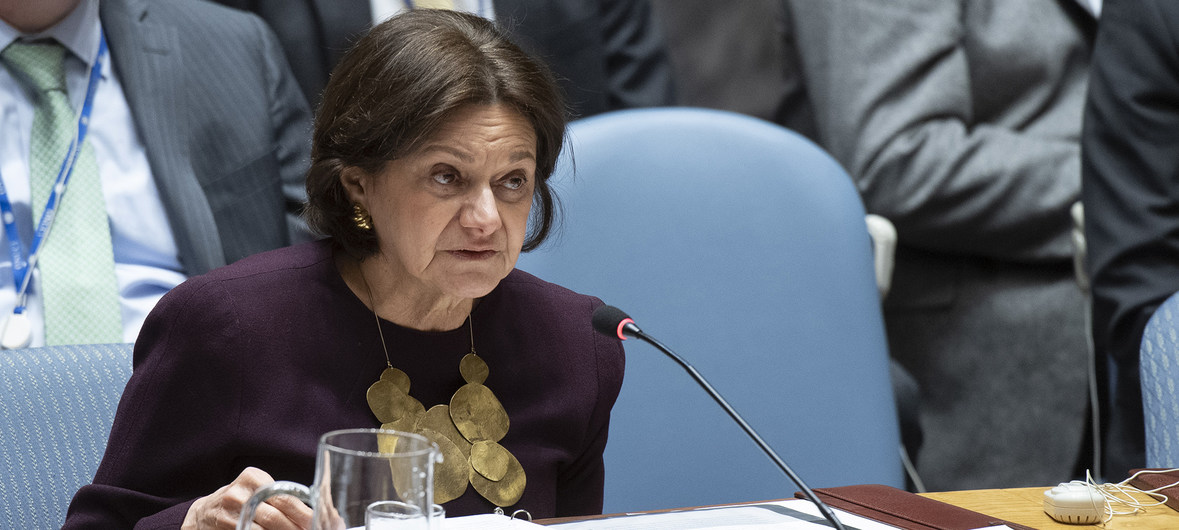Although fighting in the country has diminished, a growing number of civilians have been killed or injured in recent weeks.
Rosemary DiCarlo, head of Political and Peacebuilding Affairs, and Ramesh Rajasingham, a senior director at the UN Office for the Coordination of Humanitarian Affairs (OCHA), briefed Council members, highlighting the escalating violence in the last rebel-held enclave of Idlib, and the surrounding areas of north-west Syria.
Ms. DiCarlo described reports of artillery, mortar exchanges and airstrikes; as well as rocket attacks and raids which are putting a strain, she said, on a 2018 agreement between Russia and Turkey to limit military operations in the area, which created a buffer zone between opposition fighters and Syrian Government forces and their allies.
‘Alarming spike in civilian casualties’, displacement
Mr Rajasingham told the council that the region has seen an “alarming spike in civilian casualties: “last month alone, 90 people were killed, of whom nearly half were children. At least 86,000 people have also reportedly been displaced by this latest upsurge of violence. Health facilities, including a hospital in Saraqeb city, which had been deconflicted with the parties through established procedures, and schools, are reported to have been hit.”
Regarding last week’s capture – by Syrian Democratic Forces backed by a US-led coalition – of the last remaining territory held by the terror group ISIL, Ms. DiCarlo warned that ISIL still poses a threat, and that thousands of civilians fleeing military operations against the group have found their way to al Hol, a refugee camp in Hasakah province: more than 140 of them died on the way to the camp, or once they arrived there.
There are now 72,000 people living in al Hol, with thousands more on the way, and there is, said the Peacebuilding chief, a desperate need to maintain and ramp up the humanitarian response. However, she noted that the UN is still awaiting approval from the Syrian Government for humanitarian access for a third convoy of life-saving assistance.
Expanding on conditions in al Hol, Mr. Rajasingham said that many newcomers have arrived following gruelling journeys of hundreds of kilometres in open trucks, after prolonged exposure to intense hostilities, extreme deprivation and human rights abuses under ISIL rule. Many show signs of distress, and are suffering from trauma injuries, malnutrition and fatigue.
Mr. Rajasingham concluded with a call for continued international engagement to allow the UN to continue running “one of the largest and most complex aid operations ever implemented,” whilst Ms. DiCarlo reminded Council members, “on this grim anniversary,” that the UN Secretary-General has said that it is a “moral obligation and a political imperative for the international community to support Syrians to unite around a vision that addresses the root causes of the conflict and forges a negotiated political solution.”
